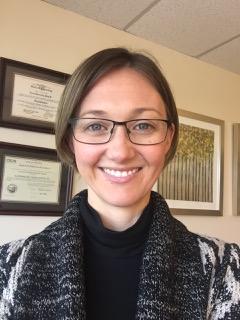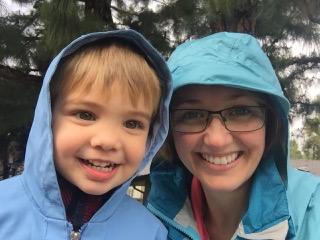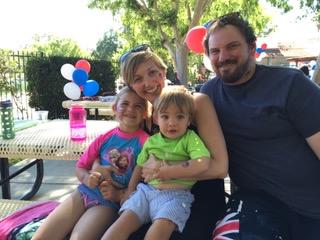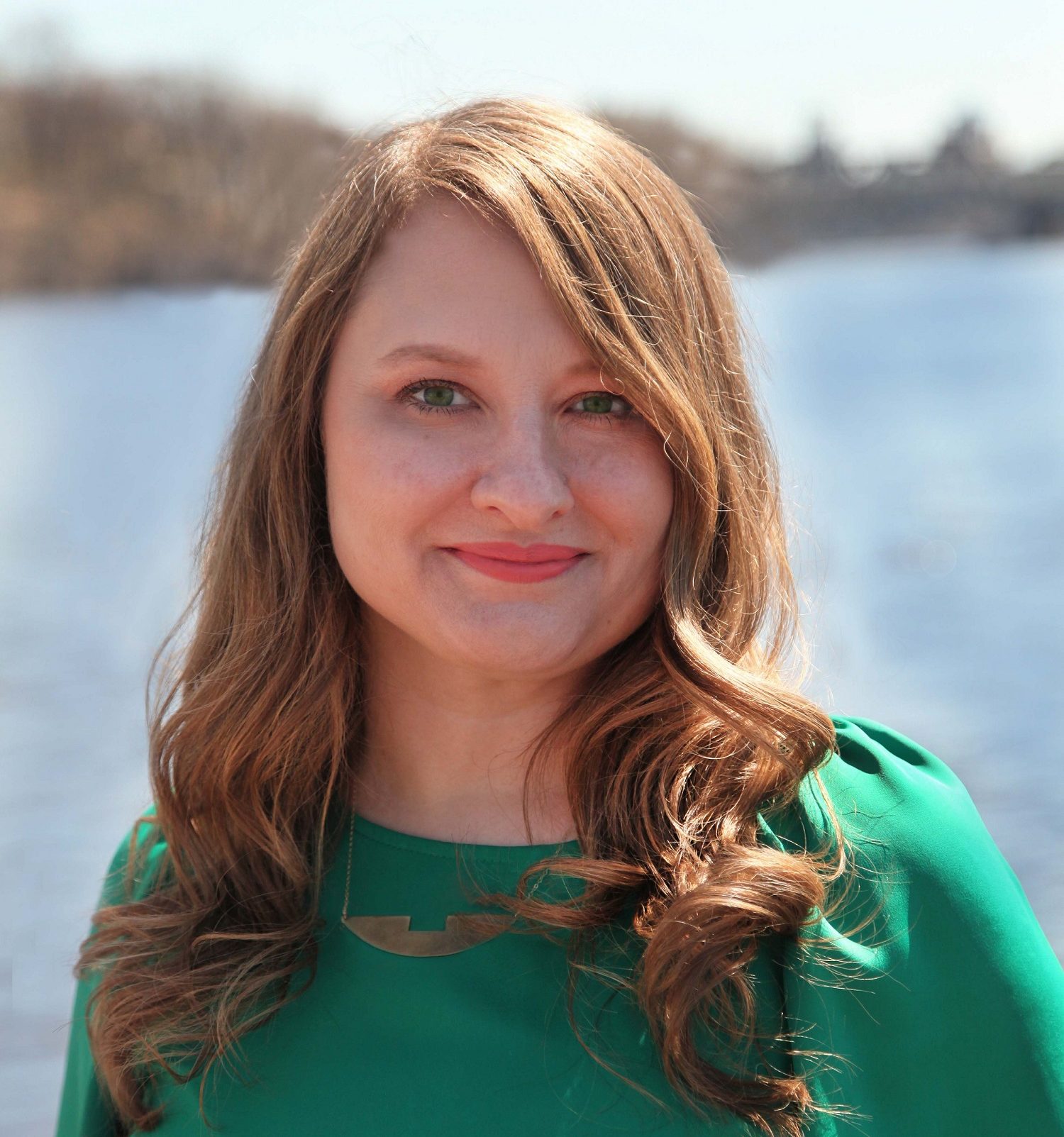 Welcome to Tuesday Q&A! Today I’m hosting the lovely Kimberley Quinlan, who always makes me feel better whenever she shares a post from her site or comments on anything I post about OCD. She’s wise and thoughtful, and I find her Australian accent very calming (but that’s kind of a side note—her content is what matters most!). See for yourself how wonderful she is.
Welcome to Tuesday Q&A! Today I’m hosting the lovely Kimberley Quinlan, who always makes me feel better whenever she shares a post from her site or comments on anything I post about OCD. She’s wise and thoughtful, and I find her Australian accent very calming (but that’s kind of a side note—her content is what matters most!). See for yourself how wonderful she is.
Although you treat more than just OCD, I know you through the OCD community. How did you decide to focus mostly on anxiety disorders, body-focused repetitive disorders, and eating disorders? From my untrained perspective, they seem to share some similarities, such as compulsive behavior.
While I don’t have OCD, I did have anxiety as a child and adolescent and I had significant anxiety and disordered eating issues in my early adulthood. When I started treating OCD, OCD spectrum disorders and body-focused repetitive behaviors (BFRBs) during my internship, I immediately knew “these are my people.” Being with my clients with OCD brings me so much joy. I get to sit with my clients and we can be perfectly imperfect together. We can cry. We can laugh. We can be vulnerable. We can be strong.
What resonates most for me is my clients’ stories about feeling like you “have” to do a compulsive behavior, despite a deep, inner knowing that it was irrational. This experience is so similar to those who have an eating disorder. Both disorders include an obsession that causes significant anxiety and distress, and both include an array of compulsions that are done to prevent the feared obsession from occurring.
I love the posts you publish on your site, particularly your soothing podcasts. Where did you get the idea to share audio posts as well as blog posts?
I am a native Australian who moved to the USA in 2001, right after September 11. A few years ago, a friend from Australia emailed me stating that she was struggling with severe anxiety and asked if I could help her. I gave her a list of great books on her specific anxiety and some information about mindfulness, but for days after we connected I wished I could be more helpful.
There are lots of great mindfulness resources out there, but so few are specific to anxiety disorders, BFRBs and eating disorders. I quickly decided I would do a podcast for those who have these specific disorders and have little access to resources. I went out and bought a decent microphone, set it up in my kitchen and I just started talking. It is kind of funny now that I think about it. I think I did my first episode in my PJs while my newborn son was napping.

Your practice is in the Los Angeles area, and of course it’s not the only clinic for individuals with OCD to choose from. What advice do you have for people who don’t live in an urban area or within a comfortable driving distance of a provider? How about for those whose insurance doesn’t cover proper treatment for OCD?
There are some wonderful books and online resources (Yahoo forums, e-books, online classes, etc.) out there for those who cannot access face-to-face treatment. The International OCD Foundation (IOCDF) is a great resource for anyone wanting to get down to business and work on their OCD. If you are doing a Google search for resources in your general area, just make sure it focuses on cognitive behavioral therapy (CBT), exposure and response prevention (ERP) and mindfulness.
There are some great options for teletherapy (online therapy) with trained therapists from your home computer or electronic device, if that is financially possible for you. Check the IOCDF website for therapists who are trained to help you and offer this option in their practice. There are some laws that prohibit out-of-state teletherapy, so check with the health care provider first.
Finding a good CBT therapist who uses ERP and who takes insurance can be very difficult. If you cannot find a therapist trained in CBT and ERP, please do not give up. My best advice is to find an in-network therapist who you feel comfortable with and direct them to the IOCDF for resources to help them to understand how to help you. Also, as mentioned above, there are some great books and workbooks for OCD using CBT and mindfulness. Bring the workbooks to therapy and go through them together. Having the support of a therapist (or even a friend or family member) can be super helpful and can help you to identify issues that you aren’t aware of.
What would you tell a client who doesn’t think ERP would work because she doesn’t have compulsions such as repetitive hand washing?
Overt compulsions (behaviors you can see) are not the only kind of compulsions. This is a big misconception. Hollywood has done a great job at portraying OCD as a disorder where one might perform a lot of hand washing or crack jumping, but it rarely shows the other compulsions that come with OCD. Compulsions also include reassurance seeking, avoidance compulsions and mental compulsions. You can do ERP with any of these compulsions. If you tend do to a lot of reassurance seeking, you could challenge yourself to not ask for reassurance and sit with the uncertainty that something bad will happen. If you tend to do mental compulsions, you could write an imaginal exposure about your obsession coming true and read it many times per day, while allowing the physical discomfort of anxiety. If you tend to do avoidance compulsions, you can work to gradually touch or be around your feared object or thought. I have learned that there is always a way to do ERP, and ERP is essential to your treatment. You just have to get creative!

Imagine a parent friend of yours says, “My cousin told me she’s worried she might be a pedophile because she has intrusive thoughts about children. Should I forbid her from being around my kids?”
Oh my stars, no! I cannot tell you how many strange and inappropriate thoughts I have had about my children or my family members’ children. If we are honest with ourselves, I think we all have had them, in some shape or form. The hard part is those with OCD tend to give these thoughts way too much value.
My 5-year-old daughter who doesn’t have OCD told me the other day that she had a “scary nightmare about hurting a kid, but it was while we were in the car coming home from school.” She decided to call these thoughts “day-mares” and she thought that was pretty funny. We give those “day-mares” as much value as we give the nightmares we have during our sleep. I love this idea and I talk with my clients about this too.
Unfortunately, our society is widely uneducated on OCD and how to respond to it. Stopping the cousin from being around kids will only enforce a faulty belief that her thoughts are valuable and, resultantly, make her OCD worse. In this case, I would tell the cousin to allow the thoughts to be there while she is around the kids. Even better would be to practice having the intrusive thoughts as much as she can. In my office, we play a game called “One-up.” During this game, we take turns coming up with the most scariest thoughts. The goal is to “one-up” each other by making the thought just a little bit more bizarre and frightening than the last one. It’s a great way to practice having scary thoughts without giving too much value to them. I always joke with my clients that my office walls have heard it all.
Do you have any advice for a young person who hasn’t yet told his family or friends that he has OCD? Are there good first steps he can take in “coming out” with OCD?
I love Brene Brown’s idea of trusting those who have filled up his or her “marble jar.” She talks about how her daughter’s elementary teacher uses a glass jar and puts in a marble if the kids are behaving well. If they aren’t behaving well, the teacher takes a marble out. When the jar is full, the teacher has a party for all the kids. Brene Brown uses this metaphor as a way of determining if we can trust someone. If a friend has shown through many incidences that they can be trusted, their metaphorical jar is full of marbles. Those are the people who I would confide in. If that person has been consistent in showing they can be trusted, and you believe their jar has been full for a while, take a leap of faith and try sharing with them.
That being said, I would be prepared for lots of questions. Try not to take their questions as judgment. The person you shared with might not understand entirely. Try to educate them as much as you can, or refer them to some of the great books or websites out there.

If you could share just one piece of advice with individuals with OCD, what would it be?
In my opinion, overcoming OCD takes two things: Deep desire and hard work. I have seen so many people get better. They come in to my office having spent years struggling and battling OCD. The ones who conquer OCD are the ones who have a deep desire and they go to work. It’s really very inspiring.
When I started working on my own anxiety in my early 20s, I didn’t have a therapist. I would read every book I could find and write extensive notes. I would take long walks while listening to helpful podcasts about the issues I was dealing with. There are lots of people out there who can lead you in the right direction. Remember, deep desire and hard work is all it takes.

Just started ERP yesterday! I’m so relieved to be started but still so very scared. I just want to be able to FEEL again! I have become to overly attuned to heckling I’ve rendered myself numb. I’m going to keep going back! I have a quick question: I have HOCD which also feeds into some ROCD. I’m supposed to be going on a trip next week with my boyfriend. Should I not go? I feel like not going would be giving into obsession. But how do I fight through thoughts to enjoy my time?! I’m hoping my ERP session before my trip will help. Do you have any exercises to help with this? THANK YOU!
I didn’t mean heckling, I meant “checking” sorry about that!
I’m so sorry for the very late reply to this, and perhaps you were directing it to Kym, but I hope you went! And I hope you continue to face your fears.
inhave ocd and aspergers and ptsd but reading this convimced ocd and pure thoughts which i think developed after suffering traumatic events inlife as u say not talked about enough as people tend to think ocd as the handwashing thing must t admit it is a nightmare as these horrific thoughts bounce into my brain !! thanks